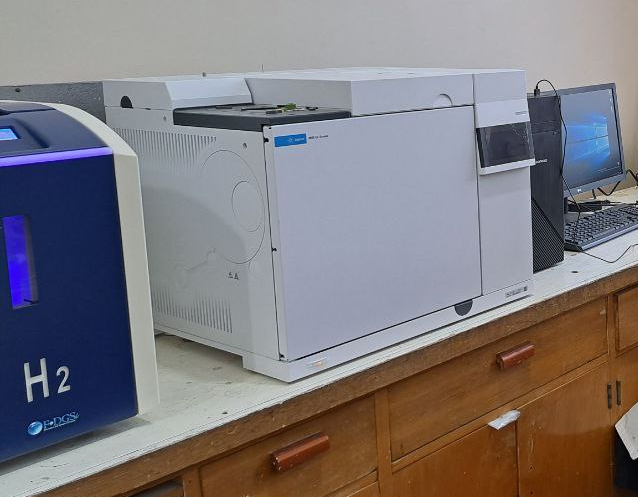Laboratory of Lipids chemistry
- Home
- Laboratory of Lipids chemistry
Information about the Lipid Chemistry Laboratory
The head of the laboratory is Doctor of Chemical Sciences Nishanbaev Sabir Zaripbaevich.
The laboratory employs 2 Doctors of Science (DSc), 1 Candidate of Science (PhD), 4 basic doctoral students, 1 trainee researcher and 2 laboratory assistants
The Laboratory of Lipid Chemistry conducts fundamental research on the lipids of wild medicinal, spice-aromatic plants, introduced and commercial crops. Currently, applied work is being carried out to create medicinal, agricultural preparations and biological additives based on lipids, lipophilic formulation and phospholipids for household chemicals and the food industry.
Fundamental research. Nowadays, studies are being carried out for establishing specificity of the composition and structure of lipids in different plant organs. For instance, the molecular structure and positional composition of triglycerides, the structure of unsaturated and oxygenated fatty acids, their chemotaxonomic significance are their biological activity are being determined.
The salt stress effect on lipids of different salt-tolerant (halophytic) and stress-sensitive plants growing on saline soils of Uzbekistan are studied. Marker lipid components characteristic of plant species with a certain level of salt tolerance are identified; the composition of lipophilic components and their biological activity are being studied, also the work highlights the possibility of using halophyte lipids for the development of medicines and remedies that increase the resistance of agricultural crops to salinity.
The essential oil composition of plants growing in the flora of Uzbekistan is being studied and their biological activity is being determined.
Applied Research. New methods are being developed for extracting lipids (two-phase, ultrasonic extraction) from different plant organs. Lipids and oil extracts of plants are being used for creating new medical preventive and nutritional supplements.
The investigation is conducted on plant phospholipids composition, and based on biologically active extracts of phospholipids and secondary metabolites (ecdysteroids, proanthocyanidins, carotenoids) it is being created pharmaceutical compositions (phospholipin, hepalipin) and new liposome-encapsulated medicines such as ecdysthene, exumid, flateron for treatment various disease.
Lipophilic waste products are under investigation obtained at the Institute during the processing of medicinal plants (Aconitum species, Rhaponticum, Crocus), so that pending further research for developing biologically active additives for household chemicals and the food industry based on them.
The lipid quality indicators of plant and animal raw materials are determined in compliance of economic agreements with manufacturers of food industry.

GX 8860 - Gas Chromatograph - Used for qualitative and quantitative analysis of fatty acids in lipids

Cary-60 Dual Beam UV Spectrophotometer
Scientific staff of the laboratory
https://aps.uzicps.uz/en/teachers?page=1&search=&department_id=3




© 2024 ICPS AS Ruz. All rights reserved.
